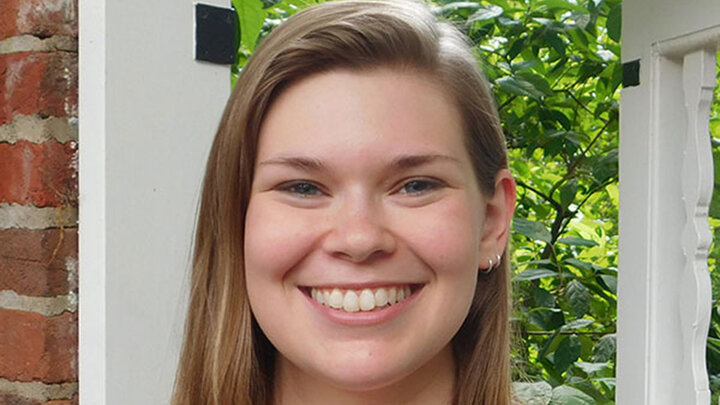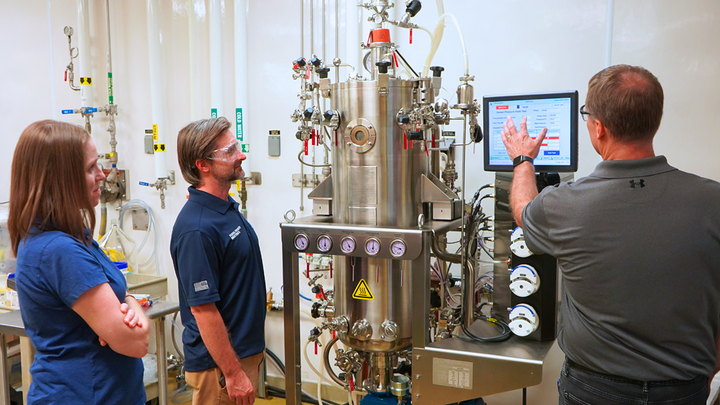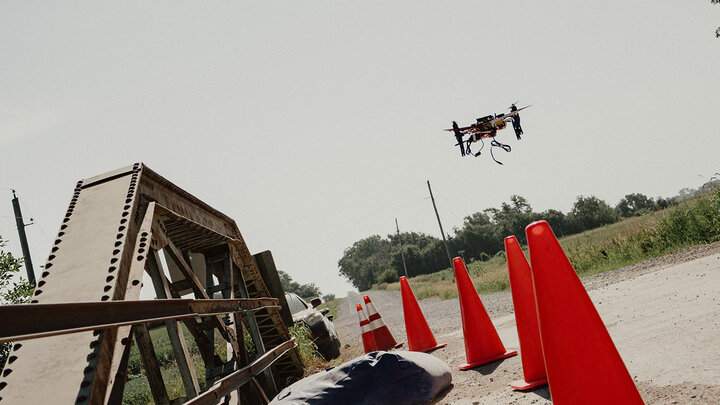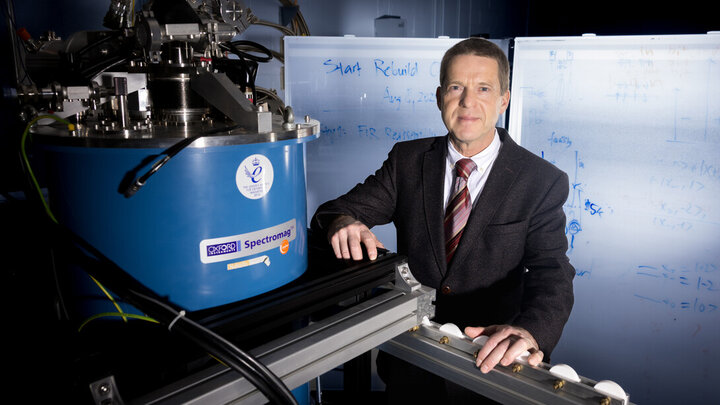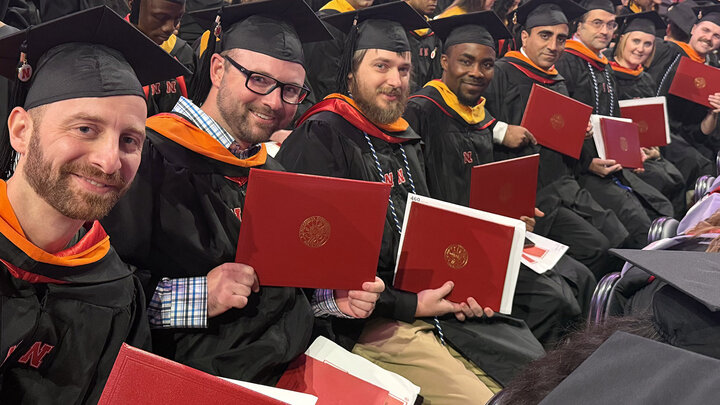Meredith Sutton, a doctoral student in environmental engineering, has been chosen to be part of the American Geophysical Union (AGU) Voices for Science (VFS) fellow cohort, a one-year program whose participants conduct outreach activities in their local communities with the goal of educating general audiences about science and engineering.
VFS, launched in 2018, focuses on helping scientists and researchers to better communicate the value of their work to decision makers, journalists and public audiences through two tracks: policy or communications.
Sutton, who received a Nebraska environmental engineering master's degree in 2022, will be engaged in the policy track, focusing on working with government and industry officials who have influence over programs and policies that affect all areas of science.
Recently, Nebraska Engineering talked with Sutton about VFS and how it meshes with her vision for her engineering career.
What is the Voices for Science program and what does it mean to you?
Sutton: "The American Geographical Union is a broad-level professional society for earth science and space science. I present my research at their conferences every year. AGU and Voices for Science are pretty heavily involved in working with scientists to spread what they're doing with their research much more broadly than just the academic community.
"I think it's really important that we take the time to sit down and consider how we are doing our research and how the results of that research are getting out to the broader community, because at the end of the day, our research is to help benefit the communities we are working in."
What inspired you to apply to be part of VFS?
Sutton: "My research has always been very community-focused and making sure (it) has been very accessible has always been really important.
"With Voices for Science, we receive workshops and training on how to communicate our research with different audiences, which we use to develop outreach projects. The projects are ours (fellows) to design, so you can pursue topics important to you and related to your research, and the AGU staff help you develop them. One idea I'm thinking about right now involves our citizen science project volunteers. Creating a follow-up process to make sure they know that they can reach out to their local NRD if they have any concerns about the quality of water in their well or nearby creek that they sampled through our project.
"I do a lot of water quality research with a focus on nitrate and microplastics, which are an emerging contaminant. A lot of that involves informing the groups that I'm working with about what I'm looking for, the issues that these pollutants might cause, and where we think they're coming from. In our citizen-science water-quality project we work with volunteers to educate them about different ways to monitor water quality for common pollutants, like nitrate and phosphate, and then ask participants to take measurements and send the data back to us. This is important, because it not only helps empower and educate these communities on local water-quality issues, but it also helps researchers get a much wider spread of data (from) across Nebraska, especially in rural areas where it might otherwise be difficult to collect."
Why did you decide on the policy track of VFS? How do you see it helping with your future?
Sutton: "I am interested in learning about working with policymakers – Congress, local government agencies, community members and journalists – and how I would need to present my work to them, so it can be used to make policy.
"The AGU workshop (in April) was about making connections – how to work with national-level policymakers, how meetings with them go, and developing a handout that most Congressional staff expect if you meet with them.
"I got to meet Mike Flood (the U.S. representative from Nebraska's District 1), and I talked to his staffer about my research with citizen scientists, the importance of making sure that it's funded, and all the good that UNL research does in the agricultural community here in Nebraska.
"Those types of meetings put issues important to you on their radar. Anyone can call, send emails, or go talk to your representative about issues. One of the larger goals for the policy track is making sure we (scientists) are aware of that and that we're comfortable being able to have these important discussions with our representatives."
Have you decided on a path for after you complete your doctoral degree?
Sutton: Not really, but this program provides a great opportunity for me to try something new. I've been exploring different career options, because the academic job market can be very competitive, and this seems like a great option for me since I really enjoy making sure that research is accessible to everyone. I'm a first-generation college student, so I've spent the entire time I've been in college (communicating) what I'm doing in language that's accessible to my family and the community I grew up with. Plus, we (researchers) are getting funding from the government to do this research, and to work with these different communities, so we need to make sure that communities are also benefiting from this research because that's the goal at the end of the day."
